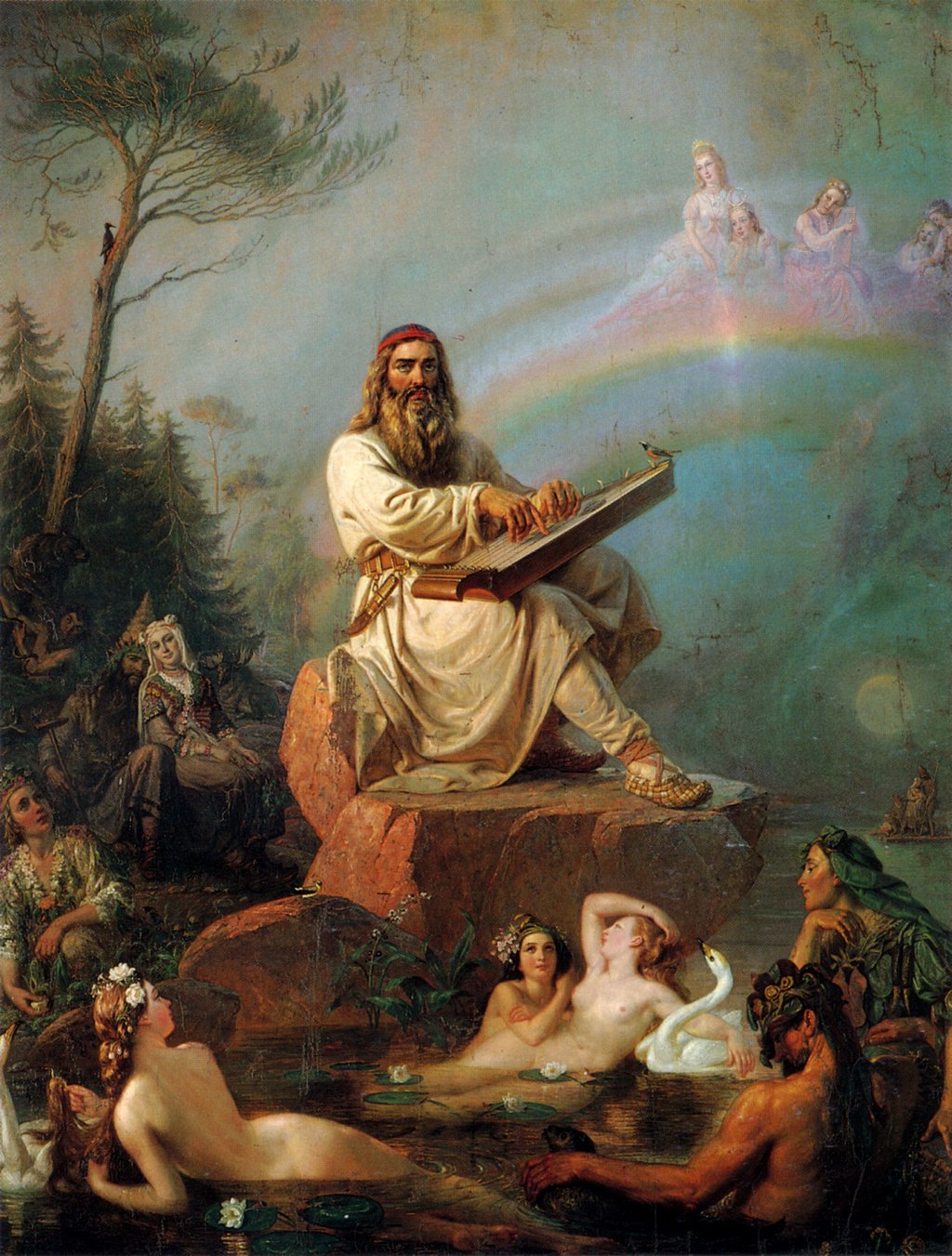Both versions of the epic are compiled from oral epic songs that were recorded in White Karelia and Ingria, where this tradition of oral poetry survived the longest. Folkloristic research showed that the language of the oral epic poems shows similarities to the West Finnish dialects, but in these areas the tradition of oral poetry was displaced by the Lutheran Church and evangelical movements during the 16th and 17th centuries. Thus, it can be argued that despite the poems themselves being collected from Karelian lands, the poems nevertheless represent a Finno-Karelian tradition.
Kalevala is written in the traditional Finnic tetrameter, or Kalevala-meter as it is also known. The meter is a syllabic and trochaic, meaning that a verse has four feet of two syllables, such as va-ka van-ha Väi-nä-möi-nen 'the ancient Väinämöinen'. As the example verse also shows, the Kalevala-meter uses alliteration as a stylistic tool. The meter was used in all genres, but the longest it survived in the spells of the religious expert, the tietäjä. The meter was a sacred method of separating ritual language from everyday language, which explains why the meter survived when singing about epic history or chanting healing spells.
Although Elias Lönnrot himself was a Christian, the epic poems of Kalevala are Pagan in origin and theme. The composition of Kalevala is based on what Lönnrot learned from a runo singer of a large part of the poems, Arhippa Perttunen. The ending of Kalevala is composed by Lönnrot to create an epic history for the Christianisation of the Finns, but the stories of Kalevala revolve around the creation of the world, interactions of the Gods and mythological explanations of natural phenomena. Therefore, Kalevala is an important piece of Finnish Pagan art.
(Photo: Väinämöinen's Play, Robert Ekman 1866. Wikipedia)
Happy Kalevala Day to everyone!

